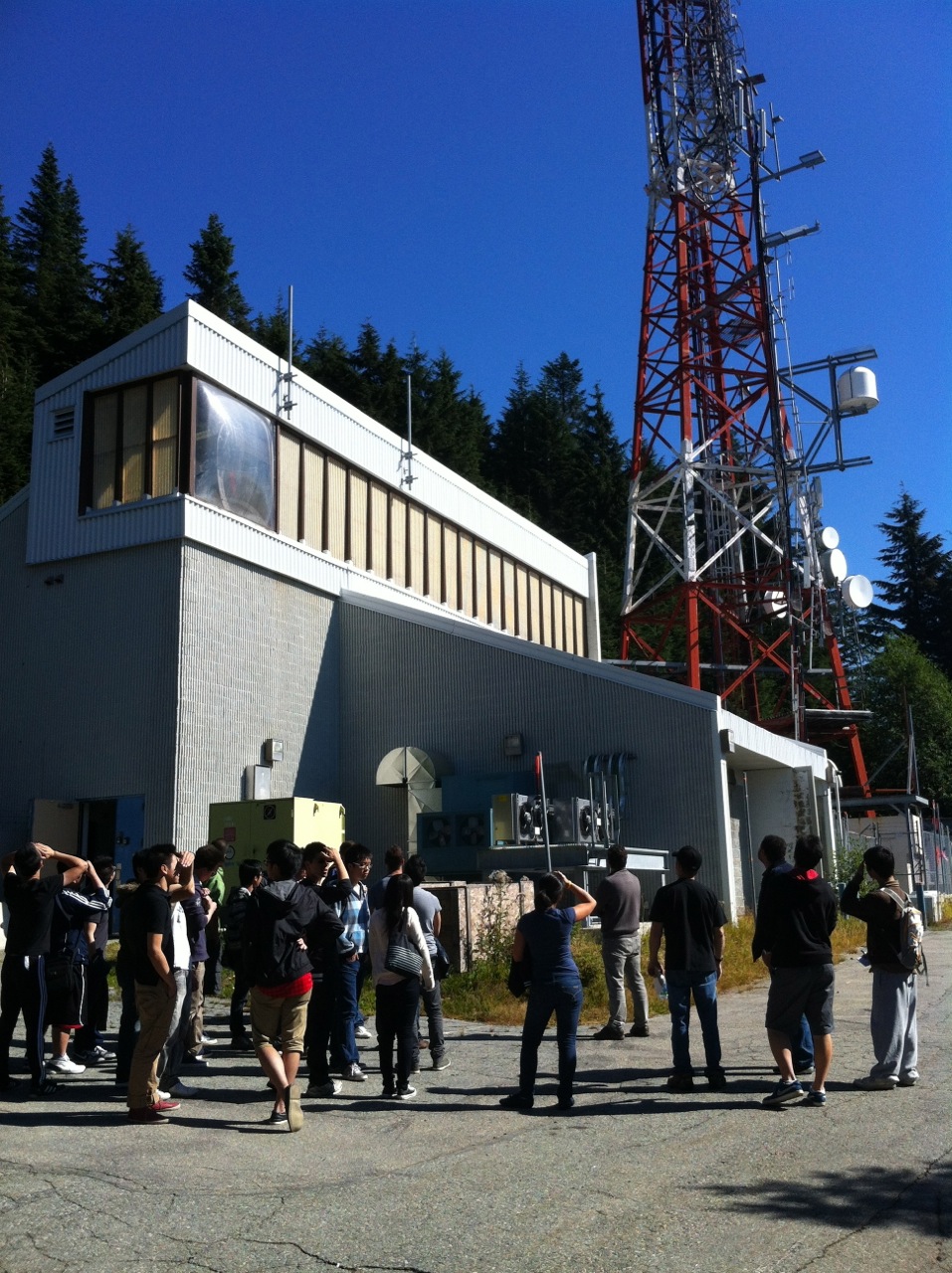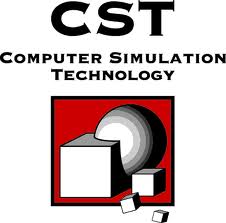
| |
|
1. Course Synopsis
2. Schedule
3. Grading
4. Industrial Sponsors
| EECE
account holders only: |
Campus
Emergency
Numbers
Emergency
9-1-1
First Aid
604-822-4444
Campus Patrol
604 822-2222
ELEC 411 - ANTENNAS AND PROPAGATION
Spring 2019 - Section 201
Welcome to ELEC 411!

Basic antenna concepts; antennas for low, medium and high frequencies; terrestrial and satellite propagation links; environmental effects on electromagnetic radiation. [3-0-0] |
| Lecturer: |
||
| Email:
|
davem@ece.ubc.ca |
|
| Office:
|
MCLD 441 |
|
| Lab: |
MCLD 132/442/500 | |
| Teaching
Assistant: |
Parham Zarei |
|
| Email: | pzarei1993@gmail.com |
|
| Office:
|
MCLD 441 |
|
| Lab: |
MCLD 441 |
|
| Lecture
Times: |
Mon, Wed, Fri 12:00-12:50 |
|
| Room:
|
Frank Forward 317 |
|
| Lab Facilities: |
MCLD
Rooftop Antenna Facilities MCLD 500 - Antennas and Propagation Lab MCLD 132 - Electromagnetic Compatibility Lab |
|
| Course Mailing List: |
https://oldlists.ece.ubc.ca/sympa/info/eece483 |
|
| Student Services Listing: |
https://courses.students.ubc.ca/ |
|
| Course
Duration: |
13 Weeks -
36 lecture hours |
|
| Approach: |
A
standard three-week cycle
will include: 1) a reading assignment 2) problem-based lectures 3) a problem set with solutions 4) workshops involving two problem-based exercises 5) an in-class quiz |
|
| Course
Text: |
Course Notes and
Handouts |
|
| Formula
Sheet Practice Exams |
Formula Sheet Practice Exam 1 Solutions Practice Exam 2 Solutions Practice Exam 3 Solutions Practice Exam 4 Solutions |
MATLAB Tutorials
ELEC 411 students should review and perfect their MATLAB skills during the first two weeks of the course.
|
Video Tutorial
Getting
Started with MATLAB05:10 How to get started with MATLAB and where to go next for more information Working in the Development Environment 04:03 How to work in the MATLAB desktop development environment Writing a MATLAB Program 05:42 How to write a MATLAB program, including creating a script and a function |
Video
Tutorial
Analyzing
Data04:44 This video demonstrates the different types of data analysis available in MATLAB Visualizing Data 04:07 This video demonstrates the different types of data visualization available in MATLAB Working with Arrays 07:52 How to create and manipulate MATLAB arrays, including accessing elements using indexing |
|
Web-based
Tutorial
MATLAB
Basics
TutorialA short web-based tutorial from Carnegie-Mellon University and the University of Michigan |
Practice
Problems
MATLAB
ExercisesA set of web-based exercises from Bucknell University. Answers included. |
|
Web-based
Tutorial
MATLAB
Getting Started An in-depth set of web-based tutorials from the MathWorks |
Supplementary
Material
A tutorial by Jeffrey Donnell,
The Woodruff School of Mechanical
Engineering, Georgia Tech.
|
1. Course
Synopsis
Wireless
Design and the Professional Engineer
| - Where public safety or legal liability are issues, it is generally necessary to have a Professional Engineer assume responsibility for the correctness of a design or results by signing or sealing a design document or report. - For example, professional engineers are often required to seal the results of tests and measurements conducted on communications and control systems, especially where deficiencies in such systems could affect public safety. - Industry Canada currently requires Professional Engineers to sign or seal most licence applications concerning broadcasting or microwave systems that operate in licenced bands. - Many clients now require that their consultants carry errors and omissions insurance. This is very difficult to obtain if one isn't registered as a Professional Engineer. - RFP's (Requests for Proposal) and RFQ's (Requests for Quotations) for consulting services often stipulate that bidders be registered as Professional Engineers to be eligible for consideration. This is especially common for work done on behalf of a provincial government or another consulting firm. - Because the Professional Engineer designation is awarded to those with documented experience in designing engineering solutions based upon established and accepted principles, many consultants feel that it gives them instant credibility with prospective clients. - If you aren't certain whether you need to register, your manager or director will not hesitate to advise you! - For more information, please contact the Association of Professional Engineers and Geoscientists of BC |
 |
2. Schedule - SPRING 2019
| Week |
Mon |
Tue |
Wed |
Thu |
Fri |
| 1 |
|
1 Jan New Year's Day University Closed |
2
Course Introduction & Wireless Fundamentals Lecture |
3 |
4 Wireless Fundamentals Lecture |
| 2 |
7 Wireless Fundamentals Lecture |
8 |
9 Wireless Fundamentals Lecture 1 |
10 |
11 Wire Antennas & CBC-TV Field Trip Briefing Problems 1 |
| 3 |
14 Wire Antennas Lecture 2 |
15 |
16 Wire Antennas Problems 2 |
17 |
18 Wire Antennas Lecture 3 |
| 4 |
21 Wire
Antennas Problems 3 |
22 |
23 Wire
Antennas In Class Quiz |
24 |
25 Wire Antennas |
| 5 |
28 CEM -
Method of Moments Lecture |
29 |
30 CEM -
Method of Moments Lecture 2 |
31 |
1
CEM - Method of Moments Hands-on Training In-Class Quiz |
| 6 |
4 |
5 |
6 Wireless Systems
Engineering
Lecture 1 |
7 |
8
Wireless Systems
Engineering Problems |
| 7 |
11 Wireless
Systems Engineering Lecture 2 |
12 |
13 Wireless Systems
Engineering Problems 2 |
14 Valentine's Day |
15 Wireless
Systems Engineering In-Class Quiz |
| Reading
Break - 18-22 Feb
|
|||||
| 8 |
25 CEM - FDTD Lecture |
26 |
27 CEM - FDTD Lecture 2 |
28 |
1 CEM - FDTD Hands-on Training In-Class Quiz |
| 9 |
4 CEM
Hands-on Exercises |
5 |
6
Nov LET'S
Case Study UBC Orbit Case Study |
7 |
8 UBC
Sailbot Case Study UBC UAS Case Study |
| 10 |
11 Antenna
Arrays Lecture 1 |
12 |
13 Antenna
Arrays Problems 1 |
14 |
15 Antenna
Arrays Lecture 2 |
| 11 |
18 |
19 |
20 Antenna
Arrays Problems 2 |
21 |
22 Antenna
Arrays In-Class Quiz |
| 12 |
25 Antenna
Measurements Lecture 1 |
26 |
27 Antenna Measurements Problems 1 |
28 |
29 Antenna
Measurements Problems 2 |
| 13 |
1 Antenna Measurement Workshop MCLD Penthouse |
2 |
3 Antenna Measurements In-Class Quiz |
4 Last Day of Classes - Term 2 |
5 |
Summary
Course Intro + Review - 3 hours
Readiness Assurance Tests - 6
Lectures - 16 hours
Workshops and Case Studies - 3 hours
Problem Set Reviews - 6 hours
In Class Quizzes - 5 hours
| Field
Trip 1 |
CBC
TV-FM Tx Site Mt. Seymour |
TBD |
| Field
Trip 2 |
CBC
AM Tx Site Steveston |
TBD |
| Field
Trip 3 |
TELUS
Cell Site UBC |
TBD |
3. Grading
10% - five readiness assurance tests (RAT) 30% - five in-class quizzes (ICQ) 10% - course project report 50% - final exam (five problems) _____________________________________ 100% - final course mark _____________________________________ If you score at least 60% on the RAT and ICQ but score higher on the final exam, I will only count the final exam. |
4.
Industrial Sponsors
Course facilities provided by major equipment donations or teaching discounts from:
 |
 |
 |
 |
http://www.ece.ubc.ca/~elec411/index.html
Last updated: 29 Dec 2018
Comments? Suggestions?
Please contact Prof. Dave Michelson, davem@ece.ubc.ca